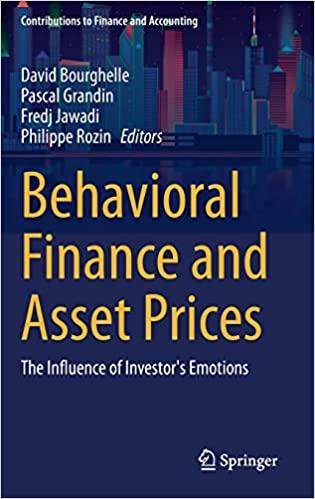
Question 4 (Retirement planning) You have just graduated University at age 22. You hard work has paid off as you already have a job as an investment banker at Goldman Sachs waiting for you. You plan to work continuously until age 65 and retire exactly on that day. You expect to live until exactly 90 and enjoy your golden years and leave you heirs NOTHING. Assume your investments earn 8% per year. You plan to contribute $10,000 to your retirement fund every year on your birthday starting at age 23. Your last deposit will be at exactly age 65 and your first withdrawal will be at age 66. Your last withdrawal will be at the moment you die at age 90. Ignore all tax considerations for this problem. (How much you will be able to spend each year in retirement? FV (deposits) = PV (withdrawals) NOTE: This could be at any time period but t=65 is particularly convenient (1)How much will you be able to spend each year in retirement if you begin deposits at age 30? (iii)How much larger do your deposits have to be if deposits start at age 30 to equal your answer in part (i)? Now let's consider the effect of inflation. The values calculated above are nominal values. However, what is more important is real, i.e. inflation-adjusted, values. Assume inflation averages 4% per year. (iv)Re-calculate parts (1), (ii) and (iii) above. (v)Comment on above Question 4 (Retirement planning) You have just graduated University at age 22. You hard work has paid off as you already have a job as an investment banker at Goldman Sachs waiting for you. You plan to work continuously until age 65 and retire exactly on that day. You expect to live until exactly 90 and enjoy your golden years and leave you heirs NOTHING. Assume your investments earn 8% per year. You plan to contribute $10,000 to your retirement fund every year on your birthday starting at age 23. Your last deposit will be at exactly age 65 and your first withdrawal will be at age 66. Your last withdrawal will be at the moment you die at age 90. Ignore all tax considerations for this problem. (How much you will be able to spend each year in retirement? FV (deposits) = PV (withdrawals) NOTE: This could be at any time period but t=65 is particularly convenient (1)How much will you be able to spend each year in retirement if you begin deposits at age 30? (iii)How much larger do your deposits have to be if deposits start at age 30 to equal your answer in part (i)? Now let's consider the effect of inflation. The values calculated above are nominal values. However, what is more important is real, i.e. inflation-adjusted, values. Assume inflation averages 4% per year. (iv)Re-calculate parts (1), (ii) and (iii) above. (v)Comment on above







